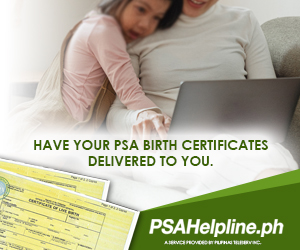Long-haul flights can be both exciting and exhausting. Along with the thrill of exploring a new destination comes the feeling of weariness after extended periods of travel. Moreover, changes in air pressure, fluctuations in cabin temperature, and disruptions to normal sleep patterns experienced in flights contribute to physical and mental tiredness. Some people also grow uneasy sitting in a confined space for hours.
Thankfully, there are some strategies you can use to help combat fatigue after a long flight. They involve taking care of your health, as well as bringing essential items to keep you comfortable while up in the sky. Many of these tips are also what long-time aviators practice to help them feel refreshed and recover quickly, so you can be certain they’re effective.
Whether you’re traveling for business or leisure or training to be a pilot in a flight school, consider these air travel tips. They will help you prepare for long flights whether as a passenger or a member of the plane’s crew.
Stay Hydrated
A few days before your flight, start increasing your water intake. Aside from its contribution to overall well-being, adequate hydration can also alleviate the effects of dry cabin air. During the flight, remember to drink plenty of water as well. You can do this by bringing a small TSA-approved reusable water bottle in your carry-on and then filling it only after passing through security.
In addition to having a hydration source throughout the flight, be mindful of your choice of beverage. Ideally, opt for water or herbal teas; stay away from alcohol or coffee as these can be very dehydrating.
Eat Healthy
During your flight, you need to eat to sustain your energy levels. Pay attention to what you eat, though. As much as possible, avoid salty and processed foods because they can cause bloating. When combined with the pressure inside the cabin, it can make you feel unwell. If your flight comes with meals, check if they have healthy alternatives.
You can also pack some nutrient-dense snacks, like nuts, fruits, and granola bars. They provide a steady release of energy and help curb hunger without giving you any discomfort.
Consider Your Meal Times
Apart from what you eat, you also need to consider when you have your meals. Align your meal schedule with the destination’s time zone to regulate your body’s internal clock. During the flight, opt for lighter fare and then have a more substantial meal once you arrive. This can promote better digestion and contribute to improved overall energy levels.
Get Quality Sleep
Quality sleep is your best friend when it comes to good health—and for staying refreshed during long flights. For the best results, endeavor to develop good sleeping habits before you travel. Ensure you get a good night’s sleep by sticking to a schedule as much as possible. If crossing time zones, gradually adjust your bedtime in the days leading up to your departure.
For the trip itself, consider bringing a comfortable neck pillow and an eye mask. Use these during your flight to create a conducive environment for rest.
Stretch and Move
Combat the physical toll of long flights with in-flight exercises. Do some simple stretches, like ankle circles and neck stretches, to improve circulation and reduce stiffness. It’s also a good idea to take advantage of opportunities to move around the cabin. Aside from visiting the lavatory, walk up and down the aisle periodically to prevent muscle cramps and enhance overall comfort.
Pamper Your Skin and Hair
The air inside an airplane can be very drying on the skin and scalp. If you want to look and feel refreshed, use an overnight mask and wipe it off before you land. Then, apply moisturizer to further pamper your skin and combat dryness. It’s also a great idea to spray a hydrating facial mist to revitalize your complexion.
For your hair, apply hair oils, serums, or sprays for added protection and moisture.
Pack a Change of Clothes
Traveling for long hours can leave you feeling sweaty and sticky. That’s why it’s a good idea to bring a change of clothes so that you can freshen up once you land. Consider including a pair of clean underwear, too.
Bring Essential Toiletries
Another way you can feel fresh while flying is by bringing some hygiene essentials with you. These include a toothbrush, dental floss, gum, deodorant, body wipes, and anything else that will help you feel and look good. Keep these items in a small toiletry bag that fits in your carry-on so you can quickly access them and take them with you to the washroom.
Maintain a Positive Mindset
Aside from your physical wellness, your mindset can impact your travel experience. Bring along some entertainment options such as books, movies, or games to keep your mind engaged during the flight. If you’re a web developer, you can even keep yourself busy by working on the web design of some of your projects. You can also incorporate relaxation techniques like deep breathing or meditation to alleviate any stress associated with long journeys.
Having a pleasant flight involves a well-rounded approach that incorporates well-being strategies before and during the flight. By implementing these tips, you can minimize travel’s physical and mental impact. They also help ensure you arrive at your destination feeling revitalized and ready for the adventure that awaits.






